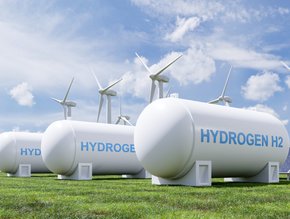Sustainable Filters Cut Apple’s Data Centre Energy by 35%

A company laser-focused on improving sustainability across its entire value chain, Apple has taken this a step further by ensuring its data centre facilities are equipped with state-of-the-art filtration technology that significantly enhances energy efficiency.
Despite being one of the largest and most profitable tech companies in the world, Apple is blazing a path toward being 100% carbon neutral in its supply chain and products by 2030.
This includes its data centres, which were reported to have consumed a staggering 2.3bn kWh of electricity in 2023.
How is Apple ensuring energy efficiency?
In partnership with K&N Global Filtration, Apple is reshaping digital infrastructure and industrial-application with K&N’s washable, reusable, sustainability-focused air filtration solutions.
Installed in all Apple’s data centres worldwide, these filters further contribute to Apple’s commitment to zero waste as they prevent the disposal of 25 tons of dirty filters each year — enough to fill an entire football field.

As well as this, this shift toward more sustainable filter solutions also cut fan energy use within its facilities by 35%.
“We are incredibly proud to partner with Apple, lending our history and expertise in air filtration innovation to help achieve their ambitious sustainability and zero-waste goals,” said Craig Scanlon, CEO of K&N. “The collaboration has led to a game-changing solution that leaves no compromise: our filters deliver sustainability, energy efficiency and superior performance.

“We have a massive opportunity to drive meaningful change and empower organisations worldwide to operate more efficiently and responsibly, ensuring a brighter and greener future for the next generation.”
Results of Apple and K&N’s collaboration
- Disposal of 25 tons of dirty filters each year prevented — enough to fill an entire football field. Apple replaced 38,000 disposable filters with K&N’s reusable counterparts
- Fan energy use cut within Apple facilities by 35%, lowering PUE and increasing operational cost savings
- Fully-customisable, washable and reusable filter developed through Apple and K&N’s partnership that meets the highest standards for efficiency and performance
- Eliminated the need to replace thousands of filters annually, cutting costs related to ordering, shipping, maintenance and the disposal of one-use filters
Apple energy initiatives
And Apple’s sustainability commitment does not stop there. As part of its 2030 goal, Apple is committed to matching 100% of its products’ energy use with clean electricity, as well as sourcing all manufacturing electricity from clean energy. This is underpinned by Apple’s investment in global renewable energy projects that help address the electricity used by its products — which Apple is working toward making more energy efficient.
Last year, the company prevented 18.5m tonnes of CO₂e being emitted thanks to its Supplier Clean Energy Programme and since 2025 has reduced CO₂e emissions across its carbon footprint by more than 55%.
*******************
Make sure you check out the latest edition of Energy Digital Magazine and also sign up to our global conference series - Sustainability LIVE 2024.
*******************
Energy Digital is a BizClik brand.






